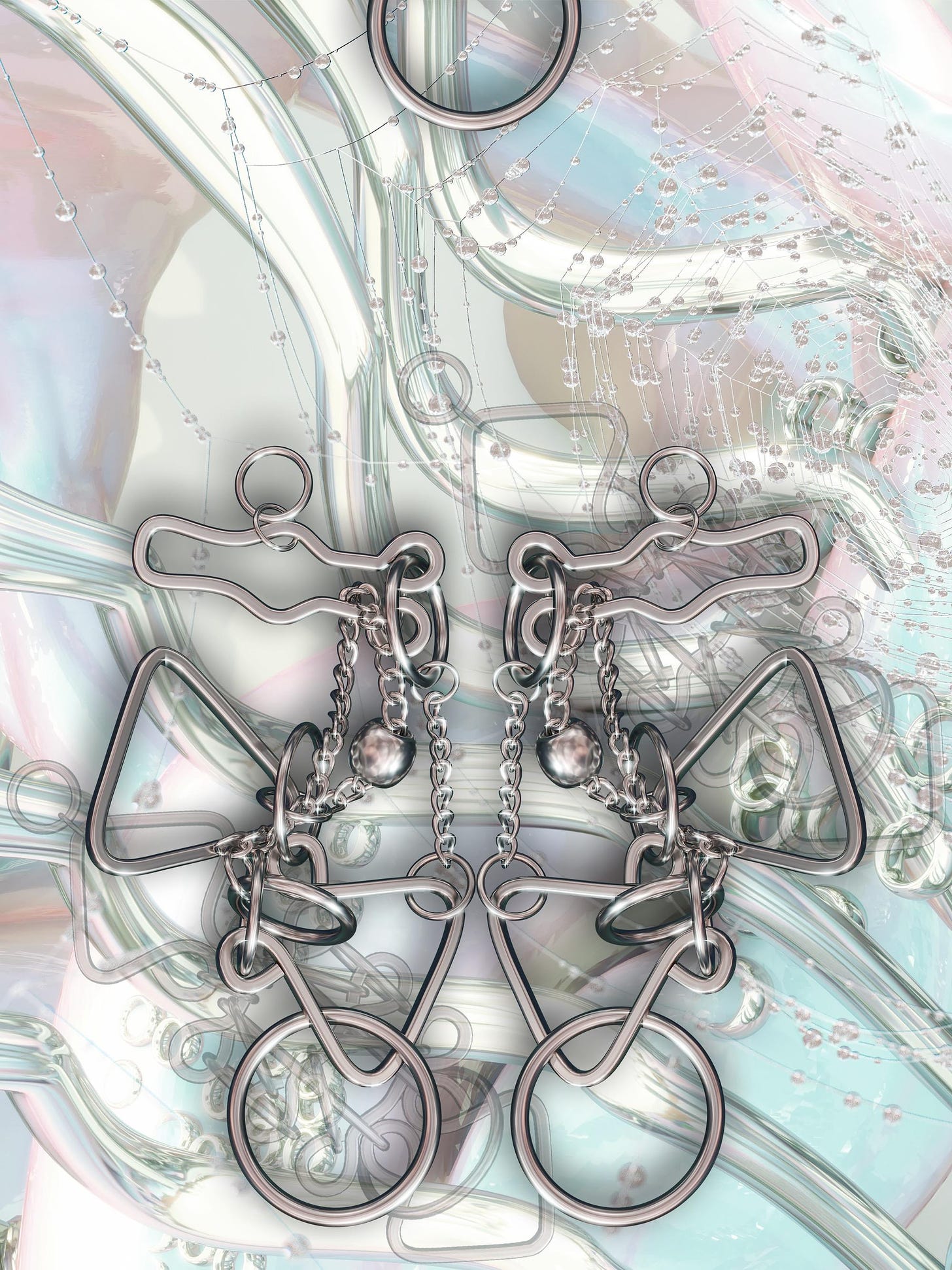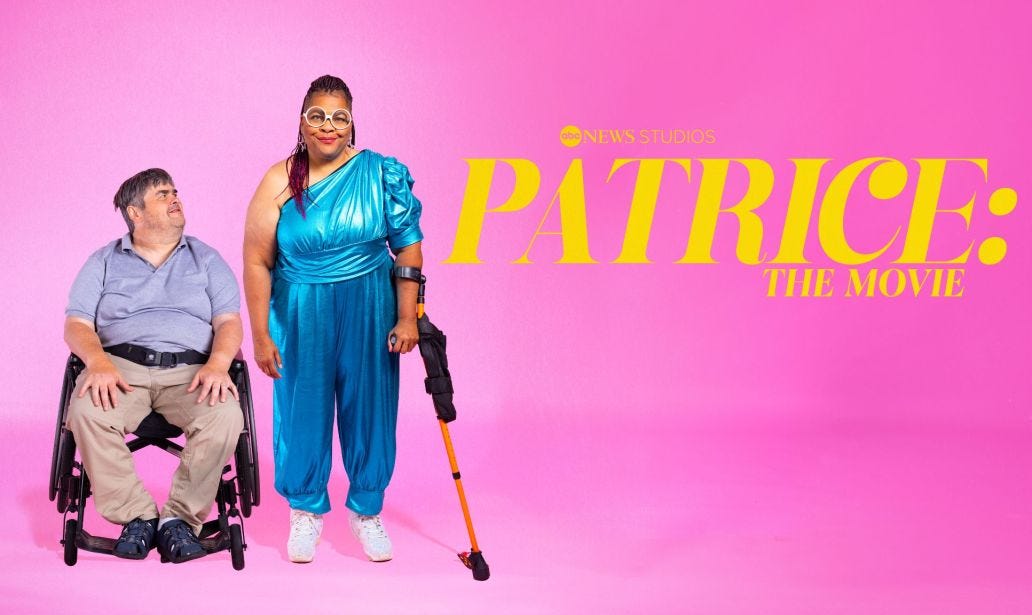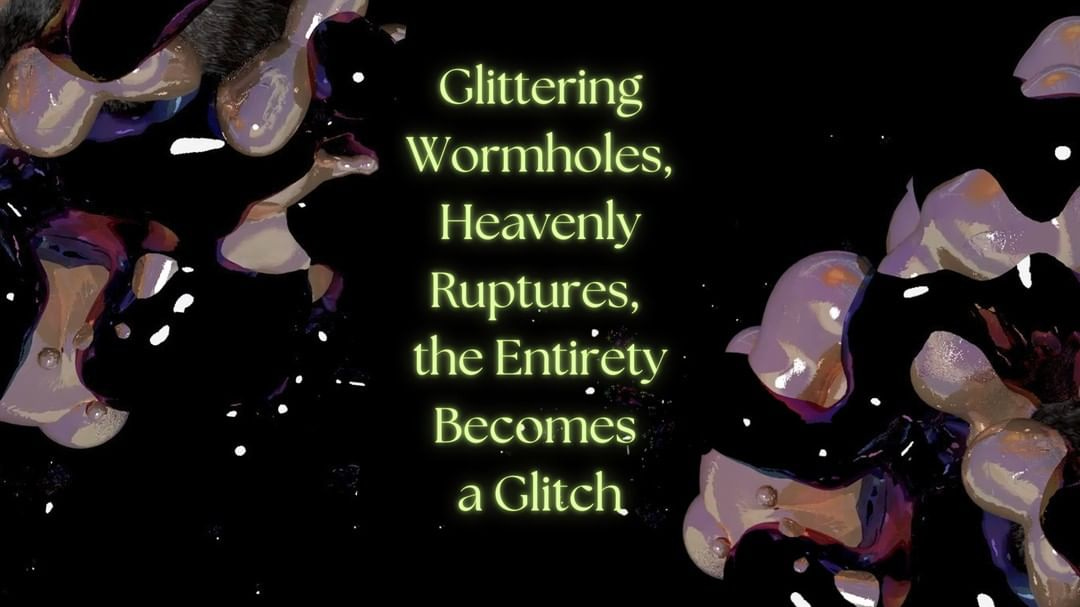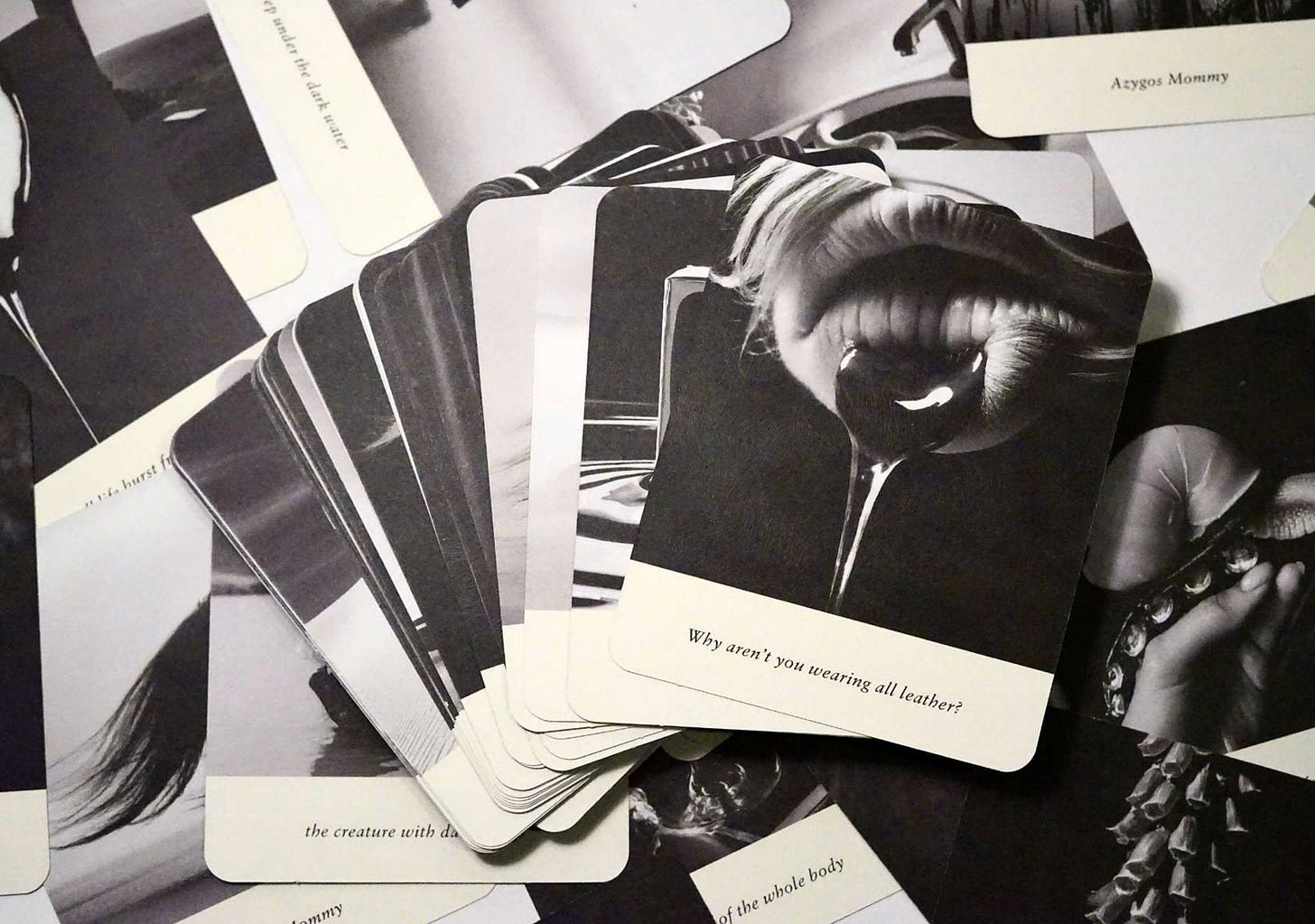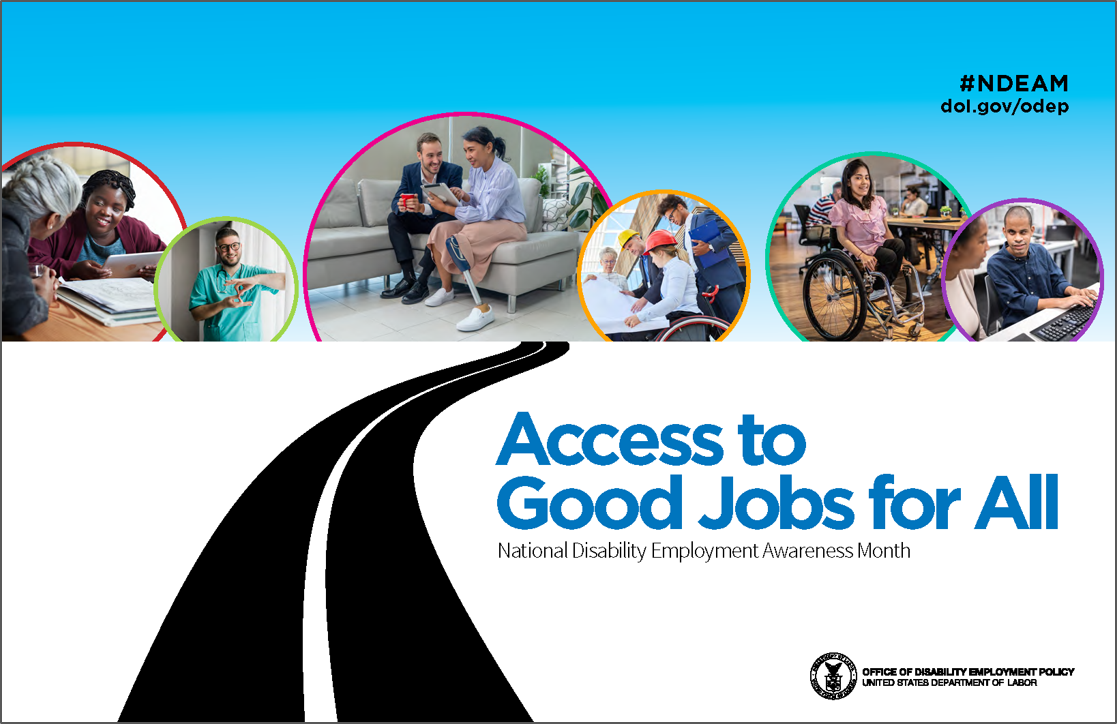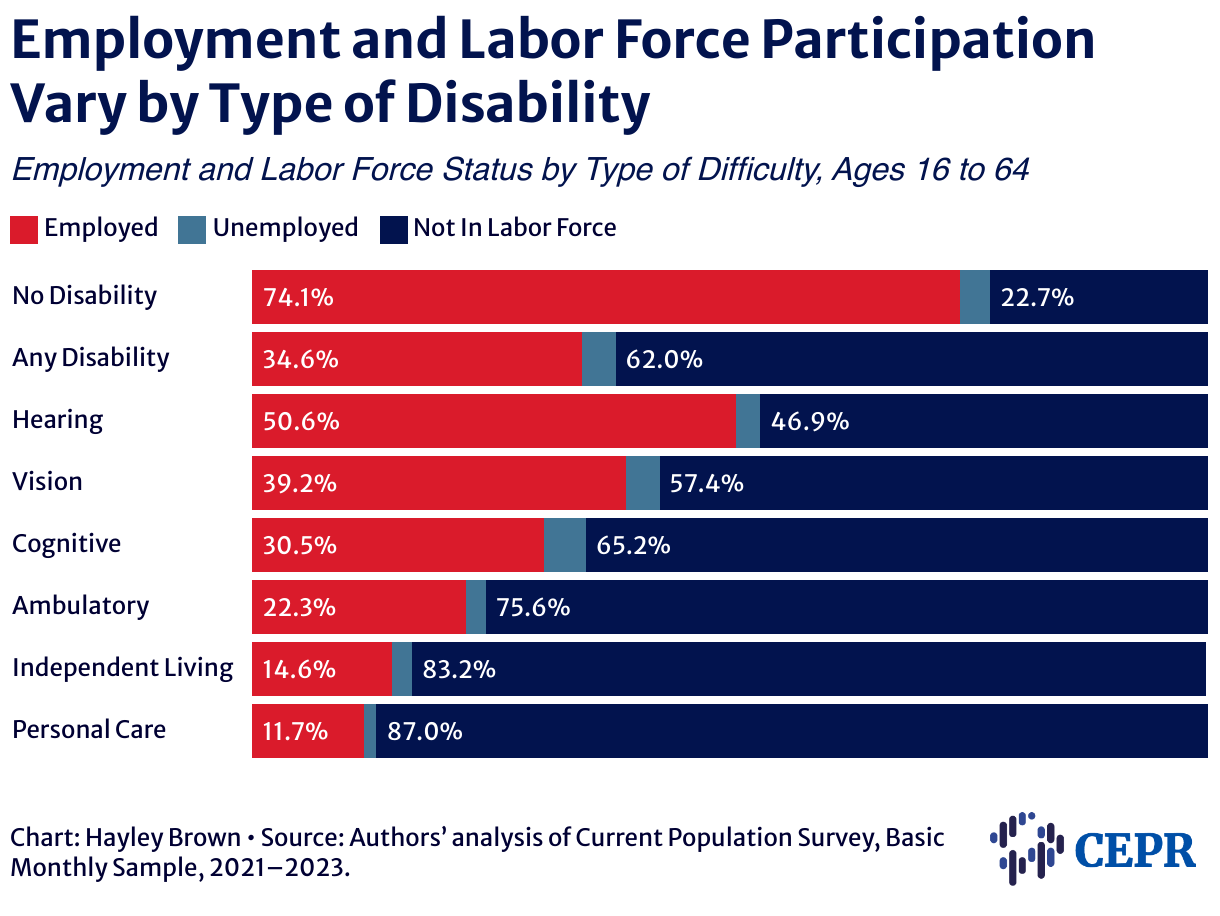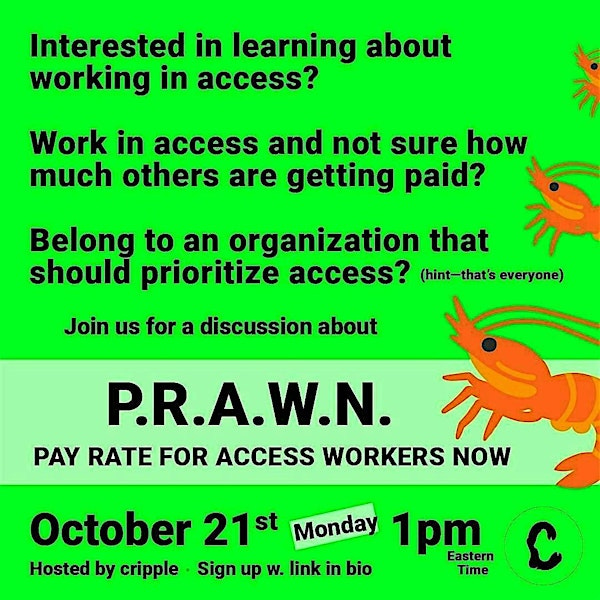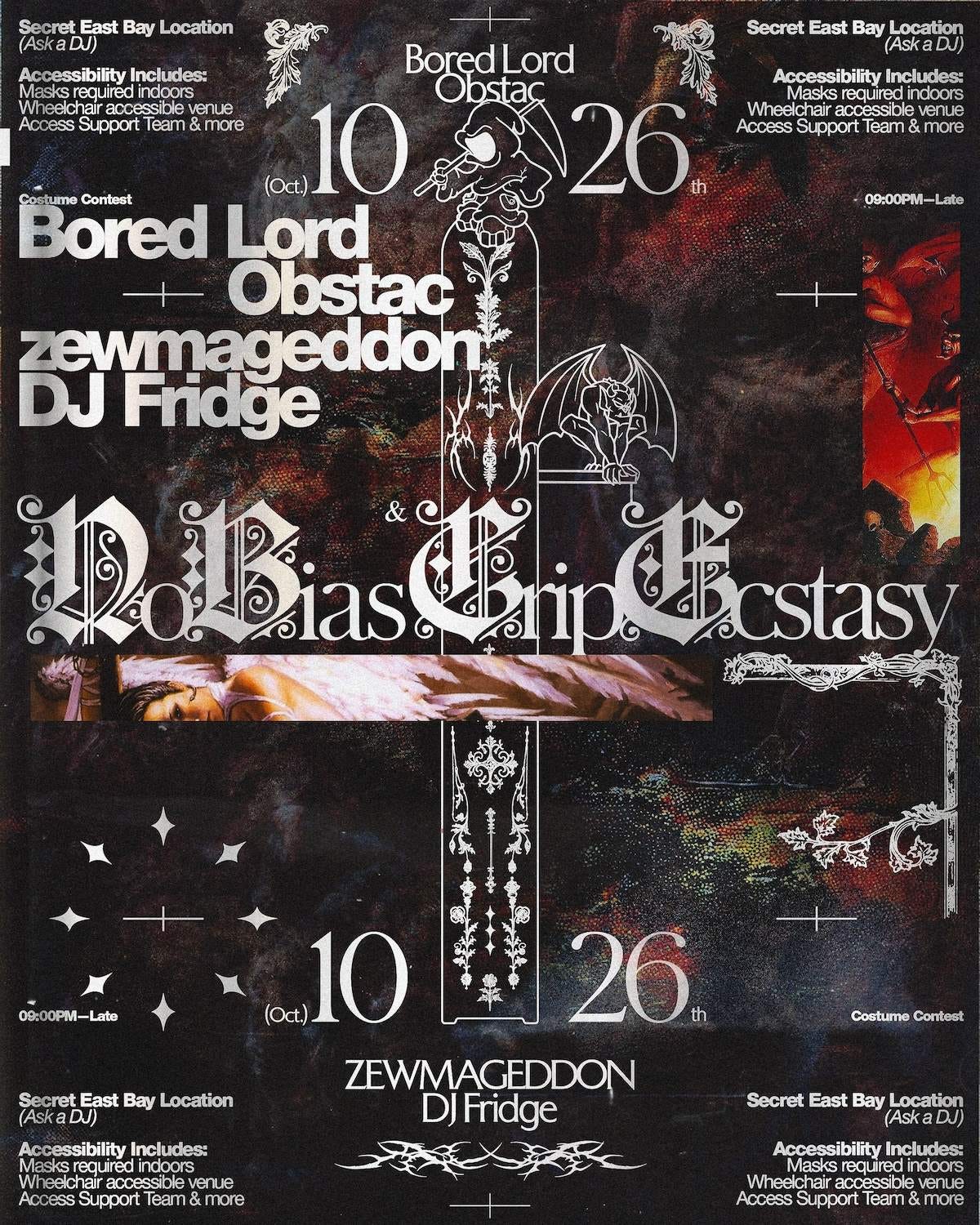NEWS
New Works
Bad Typology by Nat Decker is up at Ceradon Gallery in L.A. through November 3rd. The exhibition uses “the field of topology as a lens to analyze disability and the adaptability of the body in an increasingly digitized era.”
Patrice: The Movie, streaming on Hulu, stars Patrice Jetter and her partner Garry Wickham fighting for disability marriage equality.
A recent episode of Last Week Tonight with John Oliver took on the flaws of the U.S. disability benefits system, including a head-scratching moment in 1978 when the Social Security Administration used mime artistry to describe how the agency works.
On the Movement Memos podcast, organizers Leah Lakshmi Piepzna-Samarasinha and Elliott Fukui discuss community safety strategies and survival.
Justice in Aging has released a new factsheet called “Congress Should End Mandated Estate Recovery” about federal law that requires state Medicaid programs to seize the assets of people who have received certain Medicaid benefits after they pass away.
Renegades, a documentary series from PBS’s American Masters hosted by disabled artist Lachi, “showcases the lives and cultural contributions of little-known historical figures with disabilities.” The series looks at the lives of Brad Lomax, Thomas Wiggins, Celestine Tate Harrington, Daniel K. Inouye, and Judy-Lynn del Ray.
The Carefuffle Working Group recently organized Glittering wormholes, heavenly ruptures, the entirety becomes a glitch, a video program that explores “how queer and crip identities are not passively situated in the world but actually create it,” featuring works by Bassam Issa Al-Sabah, Maria Estela Paiso, Eternal Engine (Jagoda Wójtowicz and Matrix Nawrot), Yo-Yo Lin 林友友, and Marlon Riggs.
(Un)Hidden is a new “bi-weekly series of articles, interviews, and explorations into the history of disability” from historian Alex Green.
Johanna Hedva’s Genital Discomfort is on view at TINA in London through December 7th, featuring new and existing works across a range of media including film, paper, with inks, hair, glue, and urethral sounds, textile works with blood and cock cages, an artificial human pelvis and Lunar Moth, and data correlated from the Saros series eclipse cycles which saw the deaths of both Hedva’s grandmothers.
Crip News editor Kevin Gotkin (hehe hi) was a recent guest on Bob Kafka’s weekly Barrier Free Futures radio show from KSFR Santa Fe.
Scivias Choreomaniae by Lake Angela is a book of poetry that translates schizophrenia-spectrum experiences and upends expectations about madness.
In a National Endowment for the Arts “Tech Check,” Jax DeLuca interviews Claudia Alick of Calling Up Justice about their rhizomatic network of cultural producers, tech workers, artists, and activists.
Employment Digest
Since 2005, the U.S. Department of Labor’s Office of Disability Employment Policy has marked October as National Disability Employment Awareness Month (NDEAM). Its purpose is “to confirm our commitment to ensuring disabled workers have access to good jobs, every month of every year.” This year, the DOL launched the “Situations and Solutions Finder” on the Job Accommodation Network.
Employment is…tricky, especially from a disability justice perspective that uses anti-capitalism as a central value. While a job can be an important component of social insurance, the inaccessibility of hiring processes and workplaces has left disabled people out of “economic development” planning. The stress placed on holding a job has strengthened ableist ideals about productivity and delays much-needed changes to disability benefit programs. And while much has been made about gains in disability employment since the start of the Covid pandemic, new data typically reflect changes in self-report rather than an underlying expansion of employment access.
The Center for Economic and Policy Research’s expanded and updated version of The Disability and Economic Justice Chartbook includes important data about how entrenched disability unemployment is. Several studies have demonstrated that the ADA has had no long-term effect on disabled people’s access to employment. Existing legislation is too often cold comfort during the ongoing crisis of care work, especially informal care work, that is fueled by a lack of funding for home and community-based services.
In the spirit of this year’s “awareness” month, here some other employment headlines:
The U.S. Equal Employment Opportunity Commission recently ruled in favor of a disabled worker who was denied remote work, deciding that on-site work was not an “essential function” of her job.
But in California, a federal judge dismissed a case against Elon Musk’s X for its ableist ban on remote work.
The International Labour Organization recently released data that show disabled workers are paid 12% less than other workers globally.
Kamala Harris has a plan to end sub-minimum wages for disabled workers, but, like almost all other efforts, it has no plan for incarcerated workers.
“Needs-based salaries” that add “uplifts” to workers’ core salaries to reflect different backgrounds, might be a new model for meaningful disability-responsive employment.
Some not-to-be-missed reporting from earlier this year:
ABC News profiled disabled organizer Alexis Smith and Deaf leader Rachel Arfa in a look at the daily barriers to work in Chicago.
NPR published an investigation into the traps set by the SSI asset limits.
This week, there is an event will focus on the policies that most impact the economic health of disabled women, particularly disabled women of color, via the National Partnership for Women & Families’ Systems Transformation Guide to Disability Economic Justice. In December, the Harkin International Disability Employment Summit will take place in D.C.
New Honors
Writer, Editor, and Disability Justice Activist Alice Wong is a 2024 MacArthur Genius Fellow.
Esmé Weijun Wang’s Unexpected Shape Writing Academy recently announced the recipients of Disability Visibility Fellowships, made possible through the support of Alice Wong: Lily Orion, Jenn Deerinwater, Anne McHugh, Andrea Metheney, Amelia-Marie Altstadt, Amber Jackson, Rikki Poynter, Taryn Goodwin, Emmett Patterson, and Ola Ojewumi.
Emily Watlington was recently named a winner of the Rabkin Prize for “the creative and intellectual contributions of today’s arts writers.”
Creative Scotland and Shape Arts announced the recipient of their collaborative disabled artist bursary: Daisy Lafarge.
Petra Kuppers is among the Social Science Research Council’s 2024 - 2026 Just Tech Fellows.
Disability arts collectives Kinetic Light, Open Circle Theater, and Sensorium AI are among the winners of the Doris Duke Foundation’s inaugural Performing Arts Technologies Lab.
In Other News…
The U.S. Social Security Administration made significant changes to the rules for applying to SSI/SSDI: the “relevant work” period has been shortened to the last 5 years (instead of 15) and it won’t include jobs that lasted fewer than 30 days. Justice in Aging released a webinar recording about the new rules.
Broadway’s Romeo + Juliet, opening this week, is offering open captioning at every performance.
Last month, JCPenney debuted a new line of clothing designed to meet the needs of women who use wheelchairs.
Johns Hopkins Health System will pay $150,000 to disabled patients who were not allowed a support person — such as a parent, adult child or spouse — to assist with their medical treatment earlier in the Covid pandemic.
CALLS
Tilting the Lens is seeking paid disabled collaborators in “Co-Designing a More Accessible Fashion Industry.” Apply by Oct. 25. More here.
EVENTS
cripple presents PRAWN — PAY RATE FOR ACCESS WORKERS NOW
TODAY, Oct. 21, 1pm ET, online
Let’s organize! → Hey access workers!! (insert megaphone emoji) And people who *want* to work in access! Orrr anyone who has contact with the general public, works for companies or organizations! (hint, that’s… everyone… right?). We’re holding a talk on October 21st at 1pm eastern time to discuss P.R.A.W.N. (Pay Rate For Access Workers Now). Incredible research conducted by Madison Zalopany and Alison Kopit. We need to organize and strengthen access work—especially since a lot of this is done by so many disabled/neurodivergent people who depend on it for their livelihood. So help us organize and learn what we can do to help us, help you.
No Bias x Crip Ecstasy
Saturday, Oct. 26, 9pm - late PT, in-person at Secret East Bay Location (CA)
No Bias and Crip Ecstasy team up for an Accessible Halloween Ragerrrrrrr. Music by NO BIAS. Accessibility by CRIP ECSTASY. Ghoulish glamor by YOU. Get ready to shake some spooky ass to the trax of (A-Z) Bored Lord, Dj Fridge, Obstac, and zewmageddon. Dressing up HIGHLY encouraged, there may be a costume contest with a cash prize ;)
Disability Arts & Culture Gathering
Oct. 31 - Nov. 3, in-person in Ann Arbor, MI and online
Join Matthaei Botanical Gardens, Turtle Disco, and Ann Arbor Arts Center for a weekend of disability culture arts-based research and community building, centered on twin inquiries of environmental and interspecies gentleness, and on mad memory and archival intermedial/technological play.



